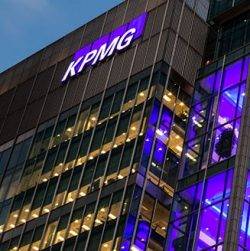December 16, 2016
Millennials more tuned-in to discrimination at work than other generations 0
 Millennials have widely divergent experiences and attitudes toward diversity and inclusion within the workplace than older generations, claims a new US-based report. In the research from the Institute for Public Relations (IPR) and Weber Shandwick into the importance that people place on diversity and inclusion (D&I) when considering a new job found that 47 percent of Millennials consider it an important criterion in their job search compared to 33 percent of Gen Xers and 37 percent of Boomers. Nearly six in 10 of all employed Americans (58 percent) report that they see or hear about some form of discrimination and/or bias at their workplace, most frequently racial or ethnic in nature (22 percent). Millennials are significantly more likely than older generations to be attuned to such behaviour at work, and also much more comfortable discussing these issues at work than their older colleagues. The survey also asked respondents why they believe employers emphasise diversity and inclusion in the workplace. All three generations cited “To make it a better place to work” among their top three reasons. Millennials also recognize increased opportunities while reputational benefits and outside pressures are noticed by Gen Xers and Boomers.
Millennials have widely divergent experiences and attitudes toward diversity and inclusion within the workplace than older generations, claims a new US-based report. In the research from the Institute for Public Relations (IPR) and Weber Shandwick into the importance that people place on diversity and inclusion (D&I) when considering a new job found that 47 percent of Millennials consider it an important criterion in their job search compared to 33 percent of Gen Xers and 37 percent of Boomers. Nearly six in 10 of all employed Americans (58 percent) report that they see or hear about some form of discrimination and/or bias at their workplace, most frequently racial or ethnic in nature (22 percent). Millennials are significantly more likely than older generations to be attuned to such behaviour at work, and also much more comfortable discussing these issues at work than their older colleagues. The survey also asked respondents why they believe employers emphasise diversity and inclusion in the workplace. All three generations cited “To make it a better place to work” among their top three reasons. Millennials also recognize increased opportunities while reputational benefits and outside pressures are noticed by Gen Xers and Boomers.

































December 12, 2016
Can an organisation simply buy employee motivation? 0
by Matias Rodsevich • Comment, Workplace
(more…)